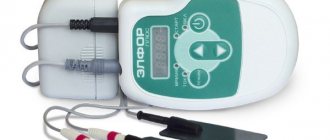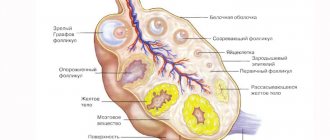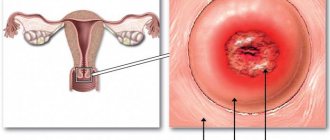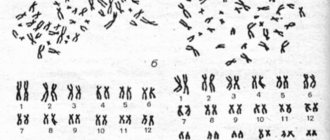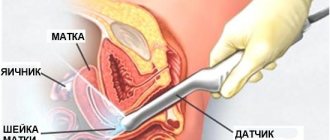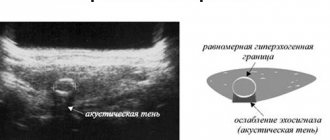Intense contraction of the uterus is a natural process characteristic of menstruation and the postpartum period. However, during pregnancy it poses a serious threat and can lead to miscarriage or premature birth.
There are several ways to normalize the contractile function of the uterus, one of them is to take herbal decoctions or tinctures that stimulate the uterus. This method helps a woman contract the reproductive organ and go through the recovery period much faster and easier.
What plants are used to contract the uterus?
Traditional medicine has in its arsenal a large number of recipes, which include herbs that contract the uterus. Herbal preparations are used in the complex treatment of such conditions, help the uterus to recover, and are used to prevent complications.
The most commonly used herbs are:
- Shepherd's Purse;
- Field jar;
- Scaly knotweed;
- Sage;
- Sagebrush;
- Nettle;
- Birch leaf;
- Senna Alexandrina;
- Barberry bark and root;
- St. John's wort;
- Bay leaf;
- Bird's knotweed;
- Watercress;
- Ledum;
- Raspberry leaf;
- Field jar;
- Spring primrose;
- Tansy;
- Calendula;
- Red geranium.
Most often, herbs are used to contract the uterus in the form of preparations, where each element enhances the effect of each other.
Indications for the use of folk remedies
The use of traditional medicine recipes should not be used uncontrolled; self-medication is unacceptable. Herbal infusions can bring both benefit and harm, so they should not be used without medical supervision, taking into account the individual characteristics of women's health.
In what cases are herbs used that cause active contractions of the uterus:
With weak contractile activity of the uterus, to stimulate the removal of placental particles and blood clots.
To terminate an unwanted pregnancy.
To induce a miscarriage by activating uterine contractions to expel the embryo.
To stop uterine bleeding.
When a decrease in muscle mass leads to heavy and prolonged discharge of menstrual blood.
After a cesarean section.
When the normal functioning of the uterus is not restored as a result of surgery, activation of myometrial contractions is required.
In the second stage of labor.
When the uterus does not contract and its cervix does not open, the child experiences hypoxia and may die.
After a spontaneous abortion.
When parts of the embryo and amniotic membrane remain in the uterine cavity and their removal is required.
If a woman is interested in how to terminate an unwanted pregnancy at home using folk remedies, she should think about the possible consequences. After such manipulations, she may lose the opportunity to have children in the future.
Decoctions for heavy menstruation
Heavy menstrual bleeding may be a feature of the body or indicate a health problem. In any case, this causes discomfort to the woman and reduces her quality of life. Fortunately, to normalize the menstrual cycle, you can use not only pharmacological drugs, but also herbal remedies. Herbs that contract the uterus during bleeding are safe, but only if the discharge is actually menstrual.
Here it is worth mentioning how to distinguish menstruation from pathological bleeding. If bleeding from the genital tract began no earlier than 21 days after the previous menstruation, the blood is brown in color, and the discharge contains inclusions in the form of clots, then we can talk about heavy periods. With uterine bleeding, the blood is liquid, bright scarlet in color, and flows out in a stream. In this case, you need to call an ambulance.
What herbs contract the uterus? For heavy periods, you can use an infusion of nettle and/or yarrow, an infusion of peppermint, a decoction of common lilac, a cherry decoction or a decoction of Rhodiola rosea. You need to start drinking natural medicine 2-3 days before your expected period and until the end of your period. Before taking it, be sure to read the list of contraindications and consult a doctor.
What to consider when using traditional recipes
If grass or herbal mixture is used to contract the uterus, you must follow the rules for collecting plants and preparing traditional medicine products.
Like any medicine, herbal decoctions and tinctures exhibit side effects if overdosed or misused. If a woman has somatic diseases, the use of such herbs is limited to contraindications.
Possible side effects:
- Increased uterine bleeding;
- Intoxication;
- Allergic dermatitis;
- Premature birth;
- Nausea and vomiting;
- Loss of consciousness;
- Inflammation of the endometrium due to the fact that particles of the fertilized egg remain inside the uterus;
- Loss of fertility;
- Death.
You need to select such products especially carefully during pregnancy. An incorrectly selected herbal mixture provokes intense contractions of the uterus, which can lead to the loss of a child, further infertility, and disruption of the functioning of organs and systems of the body.
It is forbidden to take calamus, peppermint, black henbane, fern, mint, bearberry, tarragon, rosemary, bearberry, flax seeds, and hop cones during this period.
Treatment after spontaneous abortion
After a miscarriage, gynecologists advise women to also use infusions and decoctions of medicinal herbs so that the body recovers faster. The use of herbs to contract the uterus after a miscarriage is advisable only if an ultrasound shows that parts of the embryo remain in the organ cavity. This will help avoid the dangerous consequences of spontaneous termination of gestation.
In case of a frozen pregnancy, which is diagnosed by ultrasound, medication, vacuum or manual cleaning is performed. Medication is carried out only for a period of up to six weeks, vacuum cleaning - up to a full seven weeks. Curettage is carried out for up to 12 weeks, after which time dilatation and evacuation methods are indicated. In practice this is used up to 16 weeks. At a later stage, preference is given to hormonal stimulation of labor. A so-called minor caesarean section can be performed (up to 24 weeks of pregnancy).
For any type of abortion during a frozen pregnancy, the doctor may recommend the use of herbs that contract the uterus for miscarriage. This allows the procedure to be carried out with the least harm to the woman’s health. Herbs are also used to contract the uterus after cleaning, if errors were made during the process, that is, the fetus was not completely removed.
How to prepare tinctures and decoctions?
In order for herbs to maximize their healing effects, you need to carefully follow the rules for their preparation and preparation of preparations. If this is not possible, it is better to purchase medicinal raw materials from a pharmacy chain.
Healing herbs and folk remedies used to contract the uterus:
Pour 350 ml of warm boiled water into 35 g of dry raw materials, leave for 10-11 hours. Drink during the day.
Pour 0.5 liters of boiling water over 30 g of crushed and dried birch leaves, lightly salt, leave for 2-3 hours. Drink during the day.
Nettle and its decoction.
To contract the uterus. Half a liter of boiling water is poured into 45 g of dry nettle and left for 4-6 hours. This effective remedy is drunk 100 ml three times a day.
To strengthen blood vessels and normalize blood circulation in the pelvis. Half a liter of boiling water is poured into 50 g of dry raw materials, left for 3-5 hours, filtered, and used within 24 hours.
400 ml of warm water is poured into 30 g of herb and left for 10 hours. Use twice a day, drinking ½ glass.
To stimulate the muscles of the uterus, soften the cervix, and prevent uterine bleeding. Pour half a liter of boiling water over a handful of fresh leaves and leave for 20 minutes. You can take a dried leaf (30 g), add 300 ml of water. The product is used in the last stages of pregnancy, drinking 200 ml 3-4 times a day.
Viburnum juice, bark extract.
To stimulate uterine contractions, drink 1 tbsp. l. freshly squeezed juice. To stop bleeding, infuse the bark with alcohol (1:10) for 7-10 days, taking 1 tsp. twice a day.
Pour 400 ml of boiling water ½ tbsp. l. chopped wormwood, leave for 1 hour, strain, store in a glass container. 200 ml of infusion should be divided into 3-4 doses.
Multicomponent preparations from these plants have the most effective effect.
Preparations for myometrial stimulation
Medicines from this group are intended to stimulate myometrial contractions to terminate an unwanted pregnancy or increase tone during the period after childbirth. Sometimes these medications are prescribed to prepare the uterine cervix. The following drugs are distinguished:
1. "Dinoprost". The medicine affects the process of opening of the uterine cervix before childbirth, and also stimulates the muscles, bringing them to tone. Dinoprost is administered into a vein or into the amniotic sac if it is an abortion. The drug is not recommended for use against the background of inflammatory processes in the genital system, the presence of postoperative sutures, an allergic reaction, or impaired blood flow to the placenta. When using the drug, increased heart rate, headaches, and nausea may occur.
2. "Prostenon". It is produced in the form of a special gel, which is injected directly into the cervical canal. Such therapy helps prepare the uterine cervix for labor. When using the drug, hypertonicity of the myometrium, excessive compression of the fetus and increased heart rate may be observed. It is not recommended to use the drug in the presence of scars, narrow pelvic bones and pathological fetal presentation. What other drugs are used to contract the uterus during bleeding?
3. Ergotamine tartrate. The drug acts directly on the myometrium, which increases the tone of the uterine muscles and stops bleeding. The drug is administered intramuscularly or subcutaneously after childbirth. Ergotamine should not be used during gestation, as well as in the presence of scars and bleeding disorders. The duration of treatment should not be longer than one week. Adverse reactions to the use of the drug can include nausea and vomiting; ari is often used to terminate an unwanted pregnancy.
4. "Postinor". The drug provokes miscarriage and is considered the most common in medical practice. The medication directs its action to the developing fetus. The pill should be taken within three days after the expected conception. "Postinor" provokes the rejection of the secretion of the reproductive system along with the embryo located there. It is suggested to take two tablets 12 hours apart. You cannot take more than two courses of Postinor in one menstrual cycle.
5. "Escapelle". Analogue of the previous drug. It can be used to terminate an unwanted pregnancy in the first three days after conception. If the delay in menstruation is more than 45 days, Escapelle should not be taken.
6. "Pencrofton". Designed to activate myometrial contractions that provoke miscarriage. Spasm of the uterine muscles leads to the release of the embryo and termination of pregnancy. To get the expected effect, you need to take three tablets at once. "Pencrofton" is prohibited if you are prone to allergies, pathologies of the liver or kidneys, as well as if the delay is more than 43 days. While taking the drug, nausea and vomiting, as well as intestinal disorders, may occur.
7. "Mifegin" - a drug for contraction of the uterus after miscarriage and abortion. Contraindications for use are chronic kidney pathologies, delayed menstruation for more than 45 days, a tendency to become pregnant outside the uterus, and lack of a doctor’s prescription. The drug is taken once in a hospital setting under the supervision of a specialist.
8. "Mytholian". Provokes spontaneous miscarriage. Prescribed if the last cycle began no more than 42 days ago. The drug can be used as a contraceptive if no more than two days have passed after unprotected sexual intercourse. In this case, three tablets are taken at once. It is recommended to take the drug under the supervision of a physician. Drugs that cause uterine contractions do not end there.
Alternative methods for contracting the uterus at home
In the late postpartum period, the following techniques are additionally used to contract the walls of the uterus:
- Frequently adopting the “lying on your stomach” position, as it tones the abdominal muscles;
- Maintaining breastfeeding, since the oxytocin released during this process stimulates uterine contractions;
- Performing therapeutic exercises, Kegel exercises, as it strengthens the muscles of the pelvic organs, perineum, and strengthens the muscles of the whole body;
- Drinking water with honey and lemon juice dissolved in it.
All these measures will accelerate the recovery of the myometrium and have an effective effect on the tone of the uterus and general condition.
Recommendations
In order for the uterus to actively contract and return to normal size as soon as possible, the following recommendations must be followed:
- You should lie on your stomach more often, this tones the abdominal muscles and causes contraction of the uterus. This method can only be used if the birth took place without complications;
- Breastfeeding is one of the best and most natural ways to contract the uterus. In the first weeks and months of a baby’s life, it is important to feed on demand, thereby establishing the entire breastfeeding regimen;
- if there are no complications after childbirth, the doctor may prescribe therapeutic exercises that cause contractions. A certain set of exercises will not only speed up the process of restoration of the uterus, but will also strengthen all the muscles of the body, returning the woman to her previous shape;
- In the first days after childbirth, it is recommended to drink as much water as possible with natural honey and lemon juice. This drink, which causes tone and contracts the uterus, will give strength and vigor to a tired and exhausted mother. However, this method is indicated only in the absence of breastfeeding.
To contract the uterus, it is also effective to perform Kegel exercises that cause tone. Their action is aimed at strengthening the muscles of the perineum and abdominal wall.
There are many effective ways to restore the body during the postpartum period. One of them is folk remedies for uterine contraction. Before using any herbal preparations or phytocomplexes that cause tone and contract the uterus, you should consult your doctor.
Contraction of the uterus after childbirth
The nature of a woman is amazing and magical! Take the uterus, for example. This wonderful organ can “stretch” several times during pregnancy, and after the birth of the baby it can return to normal. True, some women are very upset when they learn that the uterus cannot shrink to its previous size in a couple of weeks.
Unfortunately, no doctor can tell you how quickly your wasp waist will return to you. But there are drugs and remedies that will speed up the process of returning beauty.
"Ginestril"
A potent drug that quickly produces the expected effect. Due to its composition, the drug inhibits the production of progesterone, which leads to more intense uterine contractions. The indication for prescribing Ginestril is fibroids whose size is less than 3 cm, as well as the need to stimulate labor during normal pregnancy. You should not take the drug during gestation, against the background of late manifestations of toxicosis, anemia, or when an inflammatory process is detected in the organs of the woman’s reproductive system. When taking Ginestril, vomiting, an allergic reaction, and a deterioration in the woman’s overall health may occur.
How the uterus contracts
- Immediately after childbirth, one can only feel sorry for the uterus - this is complete damage. Particularly affected was the placenta attachment site. The poor organ is filled with blood clots, remnants of the fetal membrane, and the entire organ is “tuned” not to beauty, but to rapid healing.
- In the first 3-5 days after the baby appears, the uterus cleanses itself, contracting especially powerfully. Yes, yes, it’s not for nothing that you took such a large pack of night pads to the maternity hospital!
- Phagocytosis (bacteria are dissolved by white blood cells) and extracellular proteliosis occur in your body. Of course, provided that you are healthy.
- Lochia (discharge from the mother who gave birth) comes out of the uterus. On the first day they are bloody, on the third they are brown, in the third week they seem to lighten, and by the sixth they are almost gone. This ends the cycle of uterine contractions.
- The uterus of a woman who has just given birth weighs about 1000 g. Its dimensions are: 20 cm in length, 15 cm in width, 12 cm in the pharynx. Only 7 days will pass, and the weight of the organ will be reduced to 300 g, and after 2.5 months the uterus will weigh only 70 g!
The uterine epithelium heals quickly – about 20 days, but the placenta “attachment” site takes longer – up to 45 days. The doctor will probably ask you to listen to your contractions. If the discharge ends around the sixth week and you feel well, there is no reason to complain to the gynecologist. If they ended much earlier or, on the contrary, were delayed for a long time, it is better to go to the doctor.
Symptoms of healthy uterine contractions:
- unpleasant, but generally tolerable sensations in the mammary glands,
- pain in the perineum,
- discomfort in the lower abdomen,
- discharge - lochia,
- diarrhea (the first few days; after the 4th day, this symptom may indicate an overdose of the drug and should be the reason for going to the hospital).
Any of these symptoms may be severe during the first 7 days after birth. At the end of the 6th week of your motherhood they should stop.
Most often, young mothers suffer from pain and illness. However, if you have a low pain threshold, consult a doctor - he will prescribe a pain reliever: ibuprofen, no-shpu, naproxen, ketoprofen (or ketanol suppositories), a lidocaine injection, or something from hemeopathy - sepia, caulophyllum, bellis perennis.
Eight days have passed since giving birth, and you still have to take pills? This is not normal, go to a gynecologist and have him check you for pathology.
Causes
Spontaneous abortion occurs in almost 40% of cases. The woman may not even know that the cell has been fertilized and the process of expulsion has occurred. This happens at an early stage, when obvious symptoms of pregnancy have not yet occurred. Such a pregnancy is difficult to detect because the pregnancy is too short. It is still unknown why such abortion occurs. Doctors believe that a number of reasons may contribute to this:
- Fetal chromosomal abnormalities
- Disturbances in the endocrine system
- Caffeine overdose
- Diabetes
- Disorders of the thyroid gland
- Infectious diseases
- Injuries
- Poisoning, including medicinal
- Sperm defects
- The age of the pregnant woman is also a risk factor, if it is over 35 years old.
At too late stages, the pregnancy is terminated if there is a threat to the life of the mother or a severe pathology of the embryo is detected. Choose one of the methods: artificial birth, cesarean section, evacuation of the fetus.
What are the prerequisites for prescribing an abortion for medical reasons:
- Heart and kidney diseases
- Diabetes
- Leukemia and other blood diseases
- Severe mental disorder
- Drug addiction, alcoholism
Rapid contraction of the uterus
It happens that pain and discharge disappear already 3-4 weeks after childbirth, and the woman is very happy with this. However, this is not a very good sign. Rapid contraction of the uterus can have the following complications:
- some of the lochia did not come out, lingering inside the organ, which is fraught with suppuration and inflammation (do not forget that these are nothing more than bloody clots, remnants of the placenta and endometrium, and even waste products of your baby),
- problems with lactation: accelerated contractions of the uterus can “cut” the amount of milk produced by the body, as well as change its composition, which is why the baby may even refuse his mother’s boobs,
- the risk of getting pregnant again increases, and this would be a shock for your body, since the uterus has not yet recovered.
Medicinal herbs to enhance lactation
The process of uterine contraction after natural childbirth occurs more actively and faster if a woman is breastfeeding. The fact is that the same hormone is responsible for stimulating contractions of the muscular organ and the production of breast milk. For this reason, while breastfeeding, a woman may experience slight nagging pain in the lower abdomen - a sign that the uterus is contracting and cleansing.
The mechanism also works in the opposite direction. That is, when using infusions and decoctions that stimulate uterine contractions, milk production increases. But be sure to be careful because breast milk can be a lot. In this case, lactostasis will occur - stagnation of milk. For the same reason, it is not recommended for a nursing mother to consume hot decoctions.
Too slow uterine contraction
If accelerated contraction of this organ is rare, then protracted contraction is, unfortunately, a frequent visitor to young mothers. How to speed up the renewal of the uterus and quickly restore your body? Everything is elementary. First, consult a doctor to rule out pathologies. Secondly, don’t be lazy - a specialist will probably recommend exercises, as well as herbs.
How can official medicine help you?
If immediately after childbirth (the first to third day) you do not develop lochia and there are no unpleasant contraction-like sensations in the lower abdomen, then for some reason the uterus is not contracting. The doctor should decide her fate: only he knows what will help you better, pills or injections.
Oxytocin
This artificial hormone will help normalize lactation, heavy bleeding, and also speed up uterine renewal. It is often prescribed in the form of injections, and in particularly difficult cases (for example, after a cesarean section) - in the form of droppers.
Uterine oxytocics
Drugs from the same group, but with pharmacological additives that enhance or weaken the effect of the central substance. These are: hyfotocin, dinoprostone, ergotal, pituitrin. Prescribed both in tablets and injections.
It is important to remember: although official medicine recognizes oxytocin, some doctors do not approve of it, believing that uterine contractions should start naturally. Such a specialist will first of all advise you to turn to traditional medicine.
"Grandma's" medicines
Although these are harmless “herbs” at first glance, you should not prescribe them to yourself (or trust your mother or neighbor to prescribe them). Any treatment, even folk treatment, must be approved, or even better, prescribed by a doctor.
White lily
Pour 2 tablespoons of dried flowers into 0.5 liters of boiled cold water. Let stand overnight. Drink 100 ml 3-4 times a day.
Nettle
Pour 4 tablespoons of the dry plant into 500 ml of boiling water, let the broth cool. Drink 100 ml 3 times a day.
Shepherd's Purse
Pour 4 tablespoons of herbs into 2 cups of boiling water. Wrap until cool. Drink this amount of decoction all day.
Blood red geranium
Pour 2 teaspoons into 1 glass of cooled boiled water overnight. Drink all day.
Yarutka field
Pour 2 tablespoons of the plant into 1 glass of boiling water overnight. Drink 1 teaspoon 5 times a day.
These remedies are good because they help your body “start up” after childbirth without medications. After all, what kind of nursing mother wants something pharmaceutical to get into her precious milk!
Massages
Sometimes in the maternity hospital the doctor may do special stimulating strokes on the mother’s belly. Their goal is to stimulate the uterus. They are done every 2 hours. The doctor gently presses on the uterus. Of course, this procedure can be unpleasant, but it is worth enduring, as it is very useful.
Will homeopathy help?
Many mothers in labor like “sweet white granules” primarily not because of their pleasant taste, but because they do not contain chemicals or synthetic substances, effectively helping the uterus contract, and also mobilizing all the body’s forces for postpartum recovery.
The most popular remedies for women in labor include: quinine (helps with heavy bleeding), ipecac (eliminates weakness), staphysagria (heals the uterus from the inside), and ergot (contracts the uterus - but you need to be careful with this remedy, it can cause thrombosis and abscess ).
Exercises to contract the uterus
- Lie on the floor on your back. You can use a soft mat to make it more comfortable. bring your legs together and relax. Alternately bend and straighten your legs at a calm pace. 10-12 times on each leg will be enough.
- Also lying on your back, straighten your legs and stretch your toes towards you.
- Periodically curl and relax your toes.
- Special breathing exercises have a good positive effect. And again you need to lie down on the floor, bend your knees. Breathing is smooth and deep. As you breathe, lift your abdominal wall as you inhale and lower it as you exhale. You can help yourself with your hands, making sliding movements towards the pubic bone from the navel.
- As you exhale, squeezing your pelvic muscles, pull your navel as close to your chest as possible and hold your breath for 10-15 seconds. This exercise is called “Vacuum”.
- Kegel exercises will be indispensable in such gymnastics.
- Take a fitball or exercise ball and find a non-slippery surface. Sit on the fitball, squeeze your intimate muscles and, without relaxing them, lift your legs one by one, holding it on the weight for 10-15 seconds.
- Sitting on a fitball, perform circular movements with your pelvis in both directions. You can also swing in different directions.
This is some gymnastics for contracting the uterus. However, these exercises are contraindicated after suturing, as you will first need to wait until they are completely healed.



